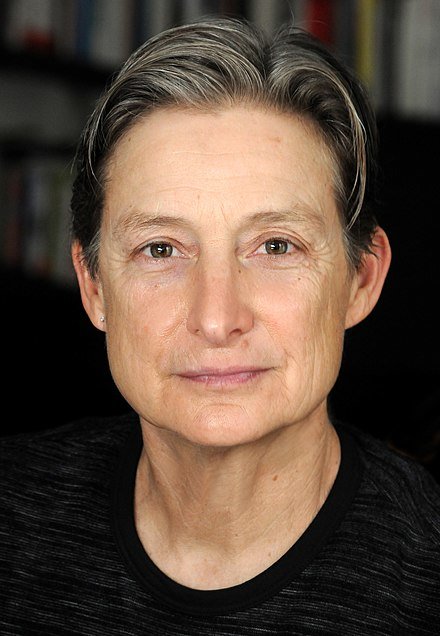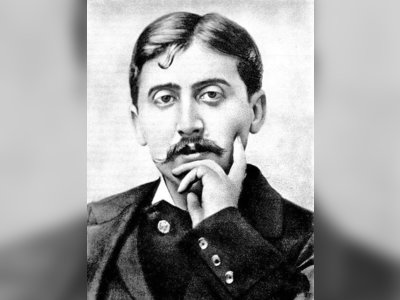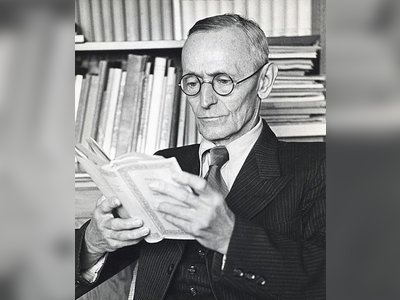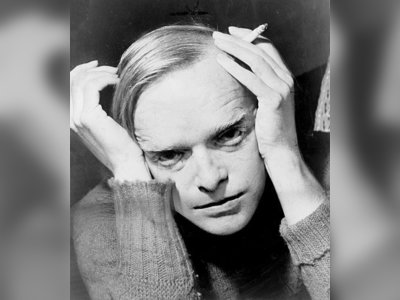Judith Butler: A Pioneer in Gender Theory and Critical Thinking

Judith Butler's work has had a profound impact on the fields of gender studies, feminism, and critical theory. Her ideas have challenged traditional understandings of gender and identity, encouraging a reevaluation of societal norms and the performative nature of gender itself. Through her pioneering writings, Butler has sparked important conversations about the complexities of gender and the ways in which it is constructed and maintained within society.
Judith Butler, born on February 24, 1956, is a Jewish-American philosopher and theorist renowned for her groundbreaking work in the field of gender studies. She holds the position of Professor of Rhetoric and Comparative Literature at the University of California, Berkeley.
A prominent feminist scholar, she authored "Gender Trouble" in 1990 and "Bodies That Matter" in 1994, both of which laid the foundation for what later became known as queer theory.
One of Butler's central contributions to critical theory is her performative model of gender, which redefines "male" and "female" as performative acts rather than natural, essential categories. This perspective sees "male" and "female" as socially constructed categories entwined with gendered societal roles.
Butler also argues that the feminist movement should not rely on fixed, immutable definitions of "woman" as such definitions are imperialistic and detrimental, promoting sexism. In her works, Judith Butler also addresses the concept of "doing gender."
Biography
Judith Butler was born in Cleveland, Ohio, to a Jewish family of Hungarian and Russian descent. She grew up in an Orthodox Jewish household but later transitioned to Conservative Judaism after her grandfather's passing. Her father was a member of the Reform Jewish community from childhood.
As a child and adolescent, she participated in Jewish educational activities, where Jewish values held a significant place in her upbringing, serving as her "first encounter with philosophy." In a 2010 interview with "Haaretz" newspaper, Butler mentioned that her engagement with gender theory began at the age of 14 when she encountered it at the Jewish school she attended.
She stated that she received teachings related to gender as a form of punishment from her school's rabbi due to her being "too talkative" in class and not conforming to expected behavior. Furthermore, Butler expressed her excitement about her studies and her choice to focus on Martin Buber. During these special classes, she also encountered the writings of Immanuel Kant, Georg Wilhelm Friedrich Hegel, and Baruch Spinoza.
Judith Butler is a seasoned advocate for the LGBTQ+ community. She is a vocal critic of Zionism and the state of Israel, asserting that its policies do not represent all Jews. She actively supports the Boycott, Divestment, and Sanctions (BDS) movement.
According to Butler, gender is not an interpretation imposed by culture onto biological sex; rather, it is a mechanism of discourse that constructs sex as a prior essence. The performative act—behavior, actions, and linguistic expressions—creates and sustains gender, repeatedly enacted through imitation, perceived as the performance of a pre-scripted script.
In an interview, Butler stated her goal is to encourage people to rethink the concept of gender in general and how each individual defines themselves. She argues that most people believe "femininity" or "masculinity" stems from an inherent, natural essence, which she contends is imperialistic and harmful.
In her writings, Butler aims to introduce linguistic challenges into conventional language, questioning concepts that are often taken for granted. She believes that these challenges to norms, things we assume to be self-evident, may lead to a reconsideration of our perceptions and potentially a shift in our understanding.
Gender Trouble (1990)
In her most popular book, "Gender Trouble" (1990), Butler delves into the concept of feminism, raising questions such as, "Whom does the feminist movement represent? Does it act on behalf of femininity or anyone identified as female? What are feminine values, and what is femininity?" Butler argues that feminism made a critical error in attempting to define women as a group.
She perceives this division as erasing the individuality of each group member, enforcing definitions upon them instead of allowing individuals to act according to personal interests and characteristics.
By making a clear distinction between two groups as different, feminism closed doors for many women. In an attempt to prove her point, Butler notes that women often say they "feel like a man" (and vice versa), illustrating that an individual's gender is just one part of their identity, constructed by cultural and societal norms.
She contends that the world is structured binarily, comprising two parts: male and female, which are automatically linked to masculinity and femininity. Butler argues that the perception of heterosexuality should not be based on binary categories like male and female; instead, it should focus on the tendencies and choices of individuals.
Bodies That Matter (1994)
In "Bodies That Matter" (1994), Butler revisits the notion of repetitive acts, which she also discusses in "Gender Trouble." However, this time, her focus shifts to the body. She argues that these acts make the power imposed on the body appear natural. In essence, power emanates from social norms, rendering the body as natural and acceptable.
She demonstrates how the repetition of acts related to the body reinforces the perception that sex is exclusively heterosexual. This perspective excludes other forms of life outside societal norms.
She employs the concept of "melancholia" to illustrate her point. According to her, first-time homosexual relationships often lead to melancholia due to self-suppression. Such relationships can be parent-child relationships, illustrating how societal prohibitions suppress such connections. Butler calls on individuals to develop an awareness of the flexibility of their identities.
Antigone's Claim (2001)
In "Antigone's Claim" (2001), Butler revisits previous interpretations by philosophers like Friedrich Hegel, Jacques Lacan, and Luce Irigaray, and, against this backdrop, she reclaims the taboo around incest and opens the discussion of possibilities for social change. She investigates whether Antigone's rebellion, the daughter of Oedipus and a figure famous for her feminist defiance, managed to escape the power structures against which she rebelled.
Butler characterizes Antigone as an ambivalent figure since her rebellion leads to her death. Essentially, her death reinforces the argument that societal norms dictate acceptable and sustainable forms of life. Butler seeks to determine whether Antigone's story, when viewed from her perspective rather than Creon's, could have altered the story's outcome.
Perhaps if the story were not told from the heterosexual perspective, it might have acknowledged different forms of life than what we consider normal today. Butler argues that Antigone's struggle is similar to those outside of societal norms, and existing frameworks today prevent us from seeing gender freedom and political action correctly.
- ג'ודית באטלרhe.wikipedia.org



